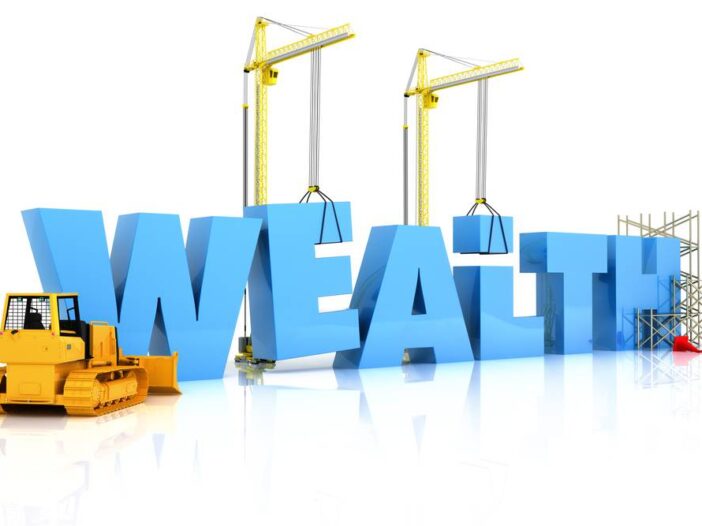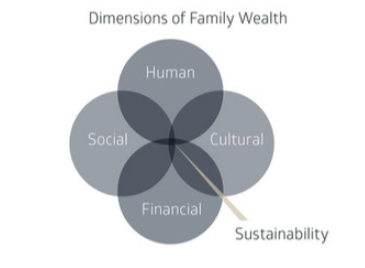Do you want to ‘get’ rich OR ‘be’ rich?
Choose carefully.
While the difference is only one small word, the outcome is HUGE.
In a scene from the movie All the Money in the World (about the kidnapping of John Paul Getty’s grandson), Getty talks to Fletcher Chase (Getty’s Mr Fix It) about a book he’d written titled How to Be Rich.
Getty told Chase the publishers wanted to change the title to ‘How to get Rich’.
Getty said (words to the effect), ‘Any fool can get rich, but to be rich means learning how to handle freedom.’
How true.
Many a lotto winner ‘gets’ rich but struggles to manage the freedom of money.
When you have wealth, there’s an array of choices…expensive toys, drugs, lavish lifestyles, spoiling children, buying friends and lovers, too good to be true investments.
We’ve known a couple who have been rich.
In the early 2000s (when aged in their mid-to-late 30s), they sold a business for more than $10 million.
What followed was a spending spree.
Extravagant holidays. Sports cars. Luxury boat. Several ill-fated investments.
Two decades later, most of the money is all but gone.
They got rich but didn’t know how to be rich.
In the coming years, I firmly believe market adversity will present the cashed-up investor with an opportunity to get rich…buying quality assets at heavily discounted prices.
However, here at Fat Tail Investment Research, we need to do more than simply help you ‘get rich’. You need to be equipped with the intellectual skills to be rich.
Being rich requires discipline.
Determining which choices add real value to your life and ignoring those that lead you to a path of personal and financial destruction.
That one word, ‘be’, has the power to frame your thinking on the responsibilities that come with wealth.
Getting rich comes with its own trials and tribulations.
Staying rich…well that poses a whole new set of challenges and temptations.
It’s these challenges that we must do our best to prepare for…trying to anticipate the events that can undermine our endeavours for successful long-term wealth retention.
Wealth is not just about money
Wealth is much more than a seven-, eight-, or nine-figure amount on a balance sheet.
That’s a one-dimensional view.
There are other dimensions to wealth…
|
|
|
Source: Publitas |
The dimensions to wealth we need to be aware of and pay attention to are:
- Human wealth
- Cultural wealth
- Financial wealth
- Social wealth
Human wealth constitutes our family members.
This requires a commitment to the continual development of their skills, abilities, and emotions to enable them to lead full, interesting, and rewarding lives. The more satisfied they are within themselves…the greater the chances are they’ll positively contribute to the family’s efforts of long-term wealth retention. The spoilt-trust-fund-kid syndrome has been the downfall of many a wealthy family. Avoid at all costs.
Cultural wealth is the identity of the family. What does your family stand for? What are your values? What won’t you fall for? How do we see ourselves? How do others see your family? How do you communicate with each other? How do you make decisions together?
Creating and maintaining cultural wealth is essential to your family’s success.
How to Survive Australia’s Biggest Recession in 90 Years. Download your free report and learn more.
Financial wealth is managing your capital responsibly and prudently, teaching your children how to be responsible custodians of your family’s wealth by your actions and communications.
Social wealth is the contribution the family makes to society…charitable causes, local community, church, professional organisations. Giving back is an excellent way to express your gratitude for being fortunate enough to have created wealth. Assisting those who are less well-off can keep you grounded. Humility is a common character trait that exists in families that have succeeded in passing wealth through the generations.
It requires far more than the simple accumulation of material assets to achieve a life of genuine success.
What’s your definition of genuine success?
Knowing what you want to achieve — over and above a dollar amount on the balance sheet — is crucial to developing the discipline needed to be sustainably rich.
Where the majority fail — like the couple we knew — is they don’t take the time to think through the legacy they wish to leave behind.
In general terms, success should be about achieving a deep sense of satisfaction from using your wealth to enhance not just your life, but your family’s life and the causes that are close to your heart.
In my mind’s eye, I visualise looking back (in years to come) and feeling a sense of contentment in having made a positive contribution to the people and social causes I hold near and dear to me. That’s my ‘big picture’ definition of success.
Having this vision guides me in my decision making.
The question I continually ask is: ‘Will this (whatever it might be) move me closer to or further away from my goal?’.
It’s a very simple question, but it can have a profound effect on how you evaluate which path to choose.
This question is: Why do I find it easy to avoid ‘high risk versus low reward’ investment propositions?
Our lives are the sum of the decisions we make…the better those choices, then, it stands to reason, the better the quality of your life.
Another person we know had an affair. He made that conscious choice. When the truth was revealed, it devastated their once tight family unit. Trust was gone. The children don’t quite see him in the same light.
Perhaps, if he had a vision of what constitutes genuine success, he might have made a different decision. Too late now. The damage is done. The family’s wealth has been divided between him, his ex-wife, and their respective lawyers.
What’s your definition of success?
Think about what it is you want to leave behind.
Really believe it and you’ll live it daily.
Conceive. Believe. Achieve.
Create a legacy you’ll be proud of
Everything I’ve read about people who fit my definition of success, is, they make a conscious effort to create a legacy for future generations.
They invest the time in defining, reflecting on, and articulating what wealth really means to their family.
If your definition of wealth is conspicuous consumption…then, in my opinion, you’ll never be truly rich.
Creating a legacy you’ll be proud of takes time, effort, patience, and resilience.
Putting down deep roots.
Splashing cash around requires none of this discipline…it’s shallow and superficial.
Which is why the wealth doesn’t last. Freedom of choice tends to come with a hefty price tag.
For me, wealth is the resource to make a positive contribution to people’s lives. Providing access to opportunities to enable them to be the best version of themselves.
The better we are at being stewards of our capital, the more resources we have at our disposal to increase that contribution…if we choose to.
Please take the time to define what it is you want to leave behind…and it has to be far more than just money.
Think about it deeply.
When you know what it is that you want to create with your wealth, then communicate this with your loved ones.
Share the vision.
Then live each day based on moving your life in the direction of your legacy.
Who knows, one day you may write your own story on ‘How to Be Rich’…to be read by future generations of your family.
Now that’s a legacy to be proud of and one, we at Fat Tail Investment Research, are committed to helping you achieve.
Regards,
 |
Vern Gowdie,
Editor, The Daily Reckoning Australia
PS: Our publication The Daily Reckoning is a fantastic place to start your investment journey. We talk about the big trends driving the most innovative stocks on the ASX. Learn all about it here.


